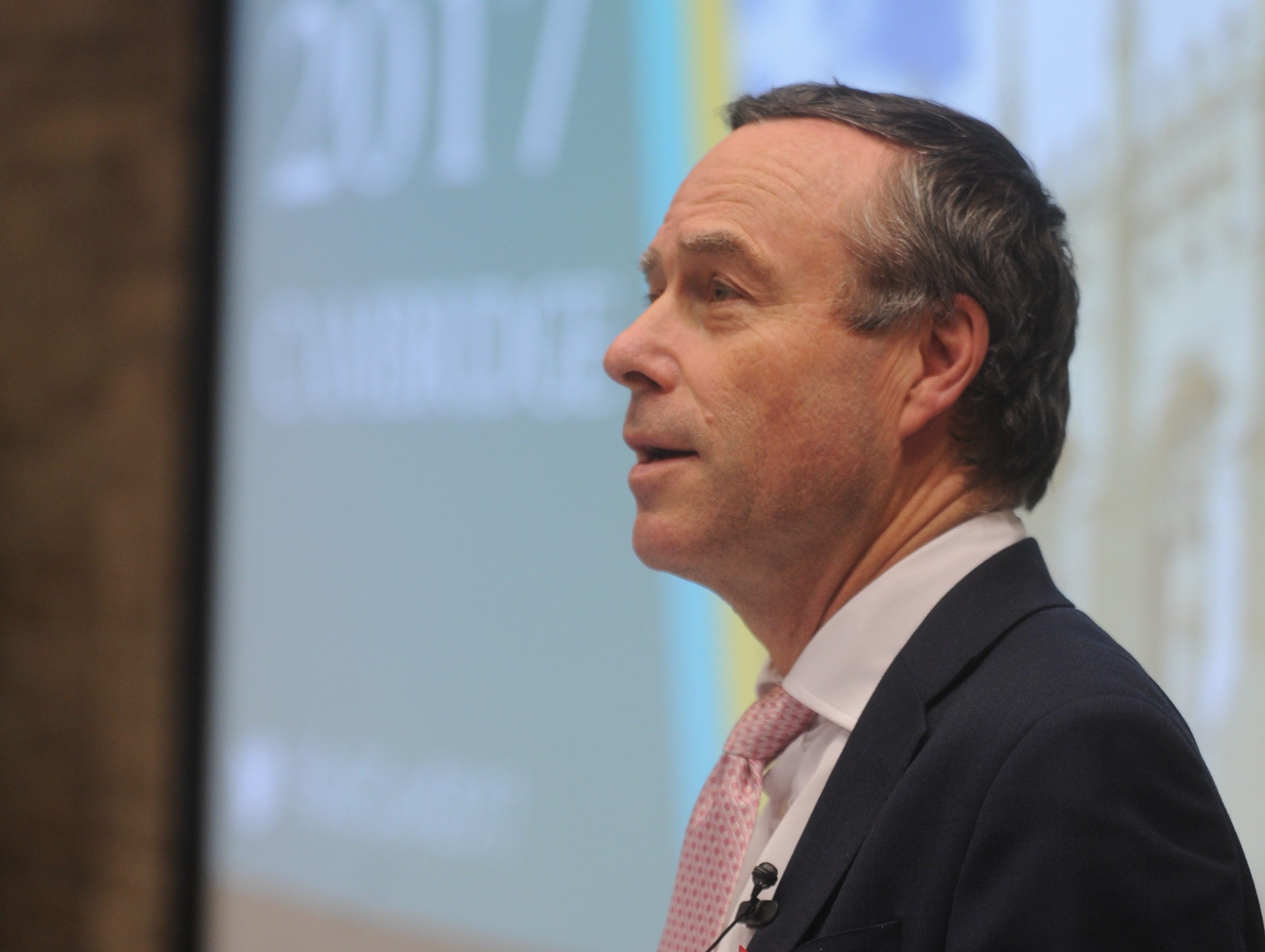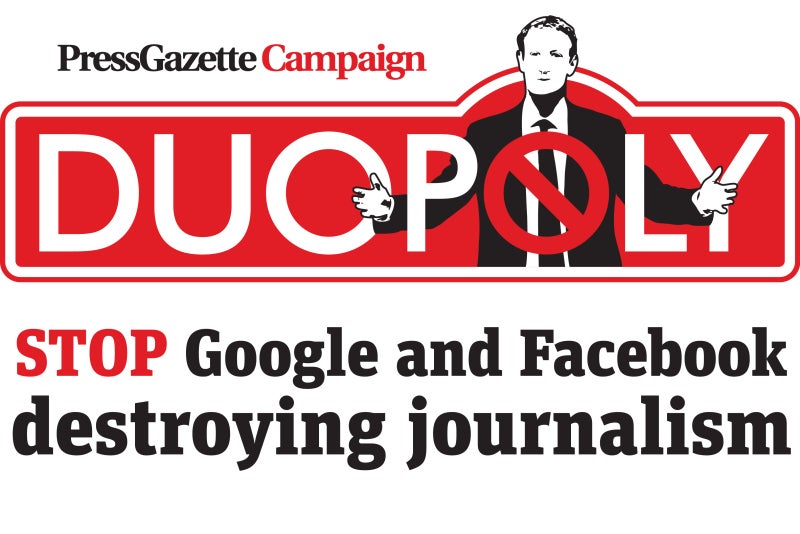
Financial Times editor Lionel Barber has said social media networks are “deeply flawed news outlets” as he called on them to “drop the pretence” that they are not themselves media companies.
Speaking at the Society of Editors conference on “Fighting for real news” yesterday, Barber said social media had “fast become the main source of news for significant portions of society”.
But, he warned: “The reality is that they are influencing or even deciding via algorithms what information is consumed. And remember, they have the power both to remove or publish content without assuming liability.”
Barber quoted statistics from US media trade group Digital Content Next that estimated 90 per cent of new digital advertising revenue was going to Facebook and Google.
He said that despite this it was news publishers and not the web giants who “bear the considerable expense and risk relating to accuracy in the post-Leveson era”.
Press Gazette’s Duopoly campaign calls on Facebook and Google to “stop destroying journalism” and pay more back to news publishers on whose content they rely.

Barber said: “Easily the most serious challenge to quality journalism is the fragmentation of news media caused by the digital revolution. I say challenge rather than threat because we journalists have no choice but to embrace the revolution.”
Barber acknowledged that the leadership of Facebook and Google appeared to have recognised some of the problems they were causing the news industry, including Google’s reform of its first-click free policy.
But he said the “dominant technology sites must recognise they need to take more responsibility for the content that appears on their sites. Not just fake news but also hate speech and extremist propaganda.
“They must drop the pretence that they are simply platforms and channels for publishers rather than media companies themselves.”
Barber said he considered a paid-for model to be the “best way for quality journalism to survive and thrive”.
He said: “We have succeeded by transforming our own business model – charging for content, raising prices and building a subscription business that has allowed us to steadily to reduce our dependence on advertising revenue.”
Barber said the Financial Times had “reshaped” its newsroom from “top to bottom”, adding: “It has not been easy, but we have done it. We have cut the number of newspaper editions and moved to a digital-first operation.”
He said the FT had a base of digital subscribers that accounts for more than 80 per cent of its worldwide readership of almost 900,000 and that advertising revenue accounted for less than half of its overall business.
The number of journalists at the newspaper had remained the same – at about 550 – since he took over as editor 12 years ago, he said, but added that the number of foreign correspondents, which he described as the “crown jewels”, was actually higher at more than 100.
Barber later hinted that the FT’s future in print could be focused on its weekend editions, but said its print circulation was currently profitable, independent of advertising.
On fake news, Barber said it was “qualitatively and quantitatively different from the past” as a result of social media offering an “unprecedented opportunity to spread fake news in real time and at scale”.
And he warned “we have only seen the tip of the iceberg on fake news”.
Barber shrugged off a question on whether he found the BBC News director job, soon to be vacant as James Harding departs in the New Year, appealing.
He said: “I have got the best journalism job in the world so why would I want to go to somewhere different?”
Barber said the FT’s maxim was “I don’t want to be first, I want to be right” and that he asked his news team to “two-source every story”.
In a message to editors, he said: “It is up to us as journalists to protect the product that will appeal to readers and advertisers alike, that will secure our future.”
He added: “To those who say journalism is dying I say this: it’s never been more vibrant, it’s just different.”
Picture: SoE
Email pged@pressgazette.co.uk to point out mistakes, provide story tips or send in a letter for publication on our "Letters Page" blog
